英文首页﹀
CNSE Held International Symposium on Rethinking the Economic Role of the State
2017-06-09
CNSE Held International Symposium on Rethinking the Economic Role of the State
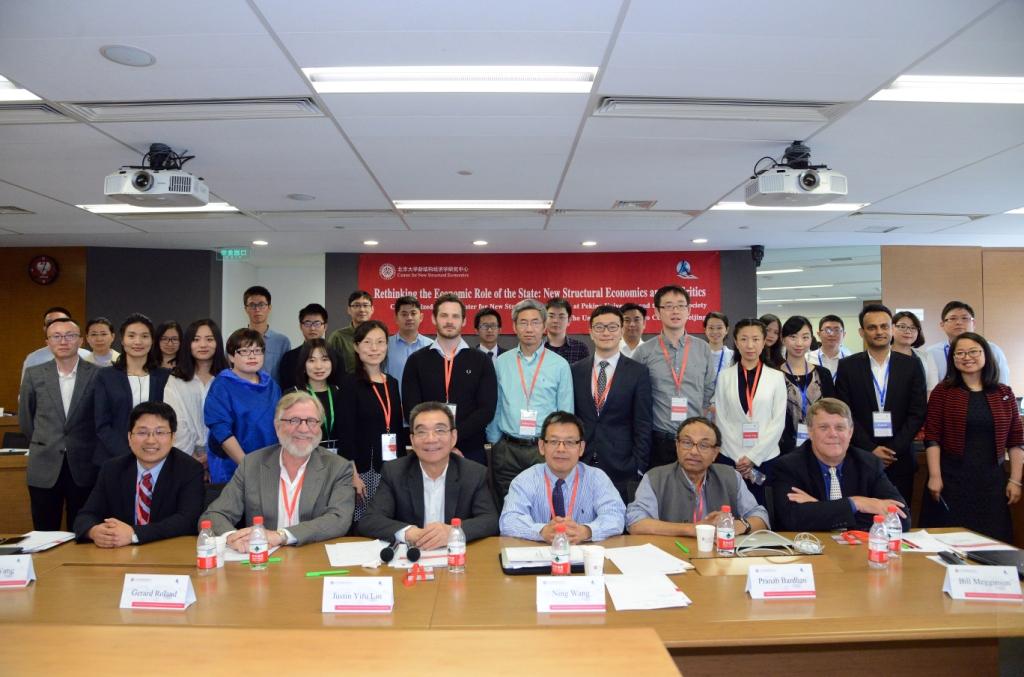
A galaxy of internationally-renowned scholars and researchers gathered in Beijing on June 3, 2017 at the International Symposium on Rethinking the Economic Role of the State, co-organized by the Center for New Structural Economics at Peking University and Man and the Economy, with the collaboration of the University of Chicago Center in Beijing.
The one-day symposium featured 12 critical and thought-provoking presentations and dialogues on the economic role of the state—one of the central questions of New Structural Economics proposed by Professor Justin Yifu Lin, Director of the Center for New Structural Economics at Peking University.
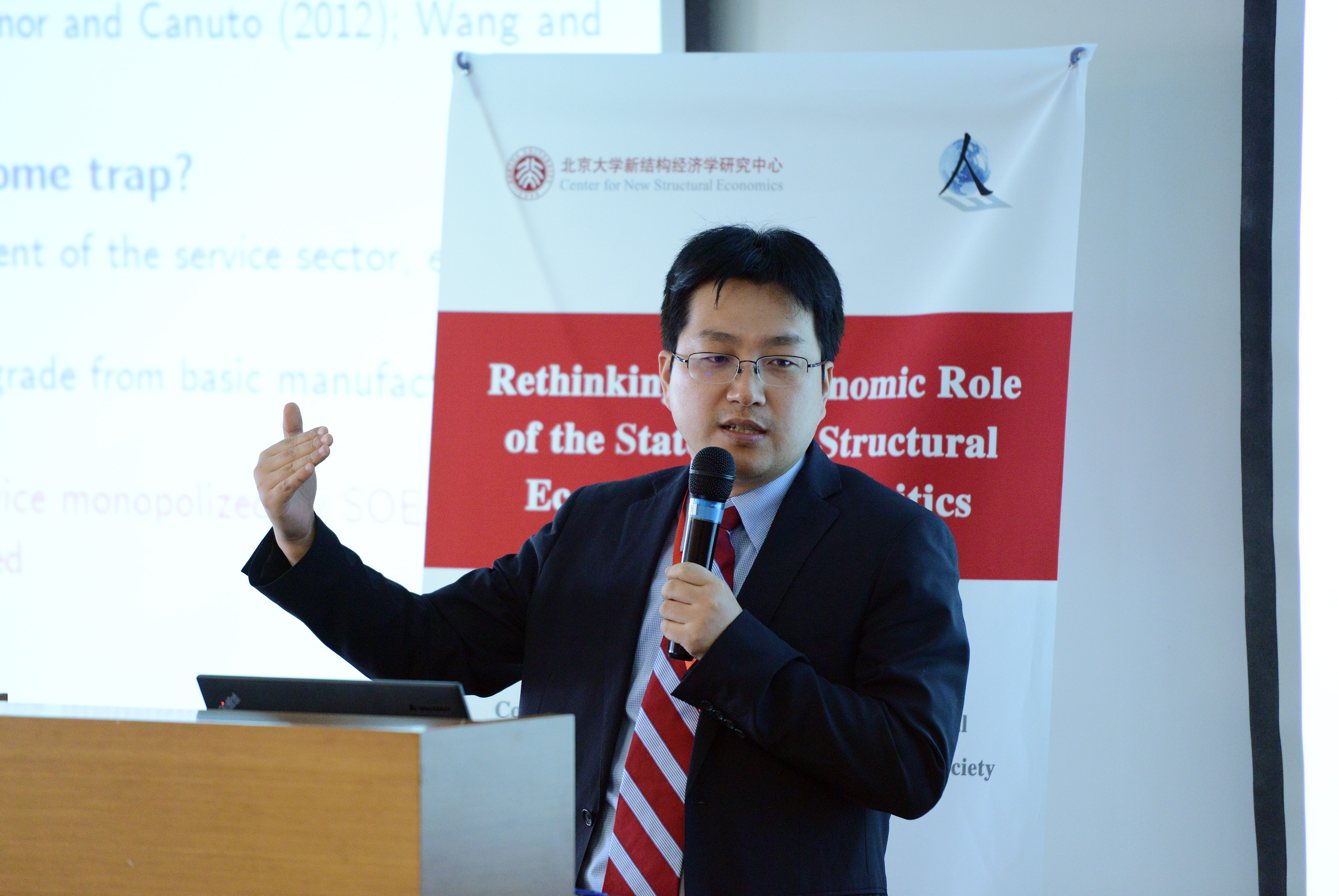
Professor Yong Wang, Academic Deputy Director of the Center for New Structural Economics at Peking University, hosted the opening ceremony.
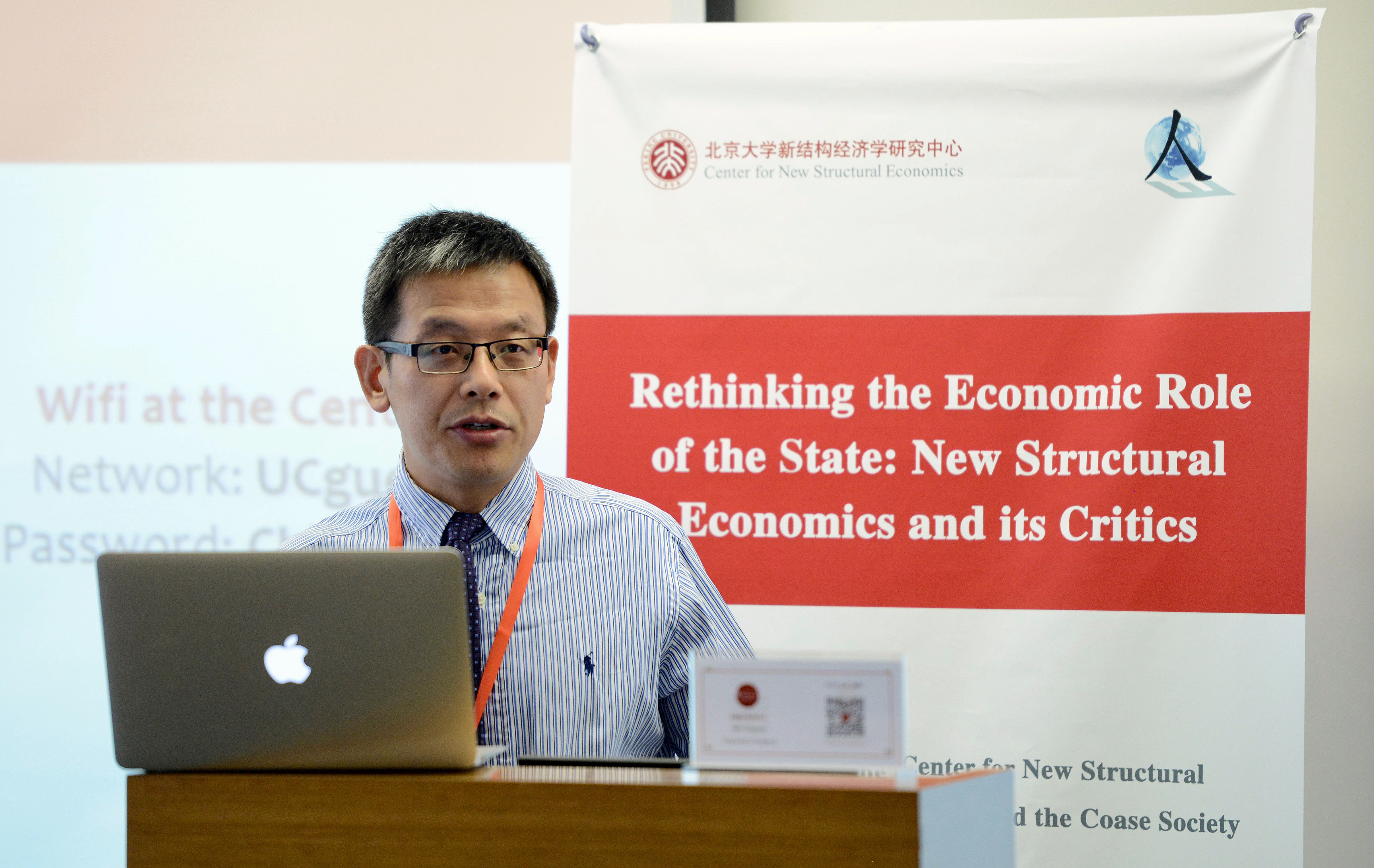
In his opening remarks, Professor Ning Wang, Editor-in-Chief ofMan and the Economy and Senior Fellow of the Ronald CoaseInstitute, highlighted the importance of the role of the state during and after China’s spectacular transition from planned to market economy and appreciated the ambitious attempt of New Structural Economics to address the miracles and puzzles posed by the country’s economictransformation.
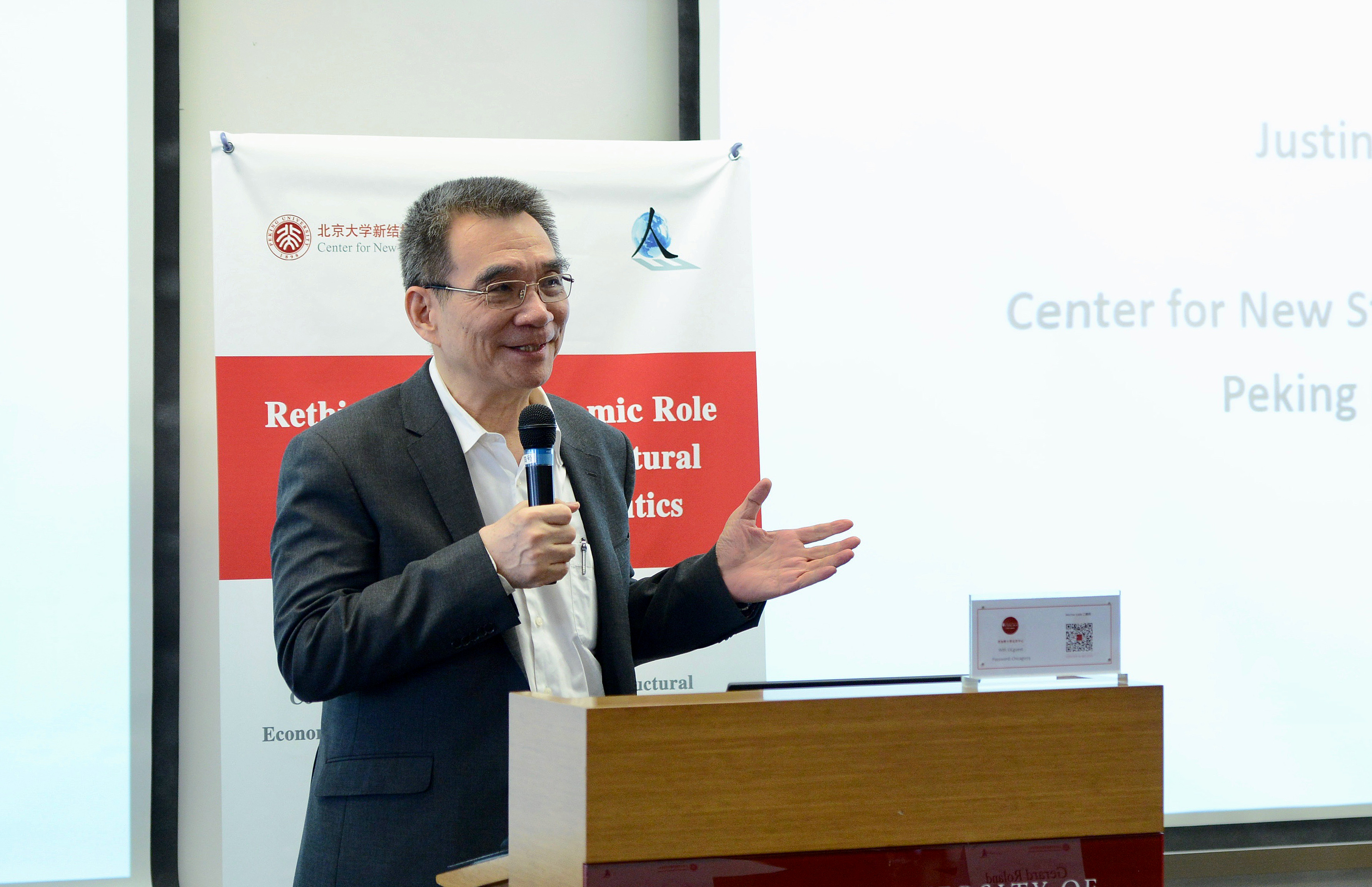
Professor Justin Yifu Lin delivered a keynote speech on the role of the state in New Structural Economics, starting with a succinct review of the roles of the state in previous development economics, particularly the strong developmental state advocated by Structuralism and the minimal state advocated by Neoliberalism.
According to Lin, New Structural Economics emphasizes the combination of an efficient and competitive market system with an enabling state to facilitate economic structural change. And China’s pragmatic, dual-track and gradual approach to transition proved that the facilitation of the state is essential to address externalities and solve coordination problems.
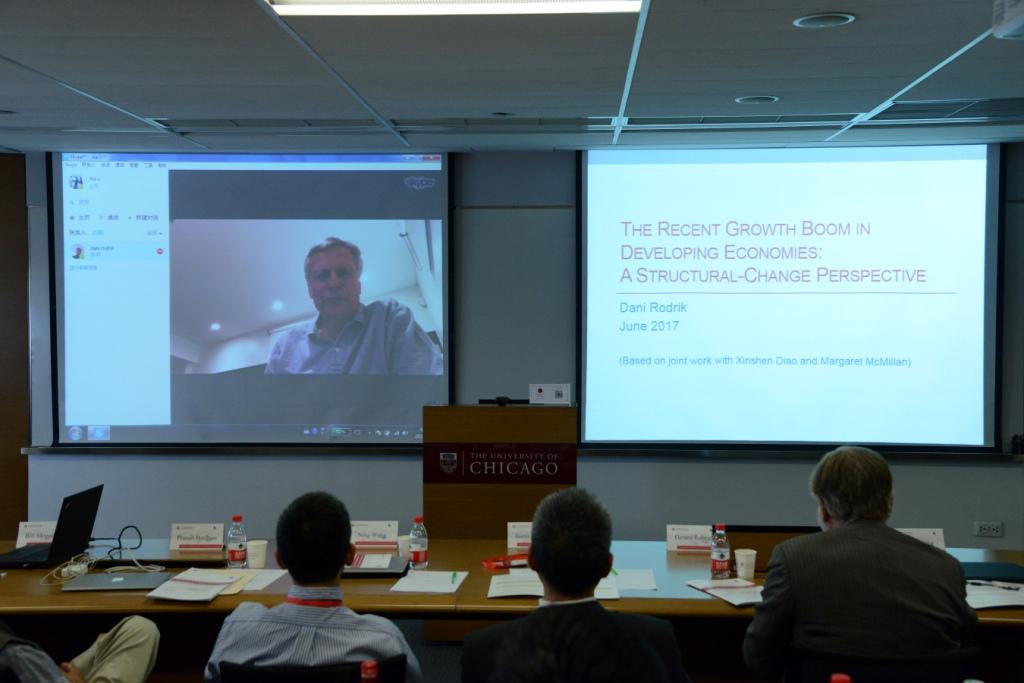
Dani Rodrik, Ford Foundation Professor of International Political Economy of Harvard Kennedy School, examined the recent growth boom in developing economies from the structural-change perspective in his keynote speech via Skype, and drew the conclusion that the recent demand-led growth episodes with the absence of industrialization was probably unsustainable, ascertaining the arguments of New Structural Economics.
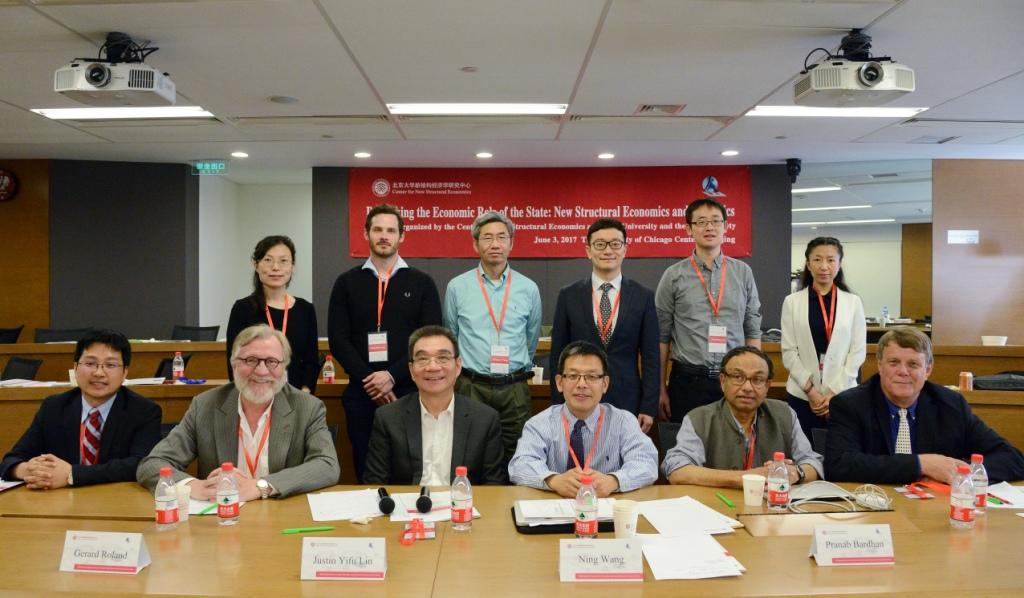
Pranab Bardhan, Professor of Graduate School, University of California at Berkeley; Bill Megginson, Professor and Price Chair in Finance, University of Oklahoma’s Michael F. Price College of Business; Ning Wang, Editor-in-Chief of Man and the Economy and Senior Fellow of Ronald Coase Institute;Gerard Roland, E. Morris Cox Professor of Economics and Political Science, University of California Berkeley; Yong Wang, Associate Professor and Academic Deputy Director of the Center for New Structural Economics at Peking University; Shiping Tang, Professor of School of International Relations and Public Affairs, Fudan University; Jiajun Xu, Assistant Professor and Executive Deputy Director of the Center for New Structural Economics at Peking University; Siyuan Liu, Ph.D. Candidate at Massachusetts Institute of Technology; Nathaniel Lane, Ph.D. Candidate at the Institute for International Economic Studies; and Zhenhuan Lei, Ph.D. Student of Department of Politics, New York University provided feedbacks and constructive critiques on a wide variety of topics centering the topic in question, including the state capacity and development, share issue privatizations and profitability, Chinese universities and the market for ideas, culture, institutions and democratization, industrial upgrading, structural change, and middle income trap, the institutional foundation of economic growth, and the role of China Development Bank in economic structural transformation, etc.
Participants agreed on the role of the state in helping countries with strong state capacity perform well and looked forward to exploring ways to help countries without sufficient state capacity drive structural transformation and economic development.

